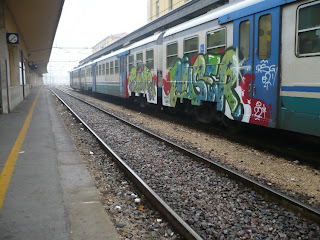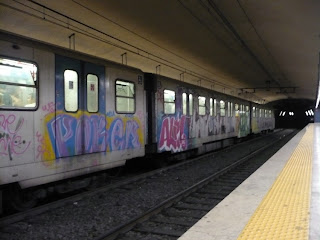This year, St. Patrick's Day brings a sense of floating: a world adrift in a bellicose, uncertain time; sliding masses of humanity through migrations, excisements, shallow-rooted wanderings; and optimistic lanterns wave-lashed yet speckle the dark.
And today feels like spring. Spring. Truly Scrumptious. [Side note: did everyone besides me know that the authors of Chitty Chitty and Casino Royale were one in the same?]
Only 19 days till Opening Day. Light till nearly 7 PM. Turtles up and about. Spring is here. Sure, we could yet get lashed with the cat-o-nine-storms, but today I heard the thwap of baseball on leather gloves, uncreaking after a winter's nap. Like turtles, another good omen. Hope you too are floating a little lighter in your shoes, be they have toes curled back or otherwise.
In honor of St. Patrick's adopted island and the graces all around us, from Gerard Manley Hopkins, Irish Jesuit mystic poet - all great things:
34. ‘As kingfishers catch fire, dragonflies dráw fláme’ | |
| AS kingfishers catch fire, dragonflies dráw fláme; | |
| As tumbled over rim in roundy wells | |
| Stones ring; like each tucked string tells, each hung bell’s | |
| Bow swung finds tongue to fling out broad its name; | |
| Each mortal thing does one thing and the same: | 5 |
| Deals out that being indoors each one dwells; | |
| Selves—goes itself; myself it speaks and spells, | |
| Crying Whát I do is me: for that I came. | |
| Í say móre: the just man justices; | |
| Kéeps gráce: thát keeps all his goings graces; | 10 |
| Acts in God’s eye what in God’s eye he is— | |
| Chríst—for Christ plays in ten thousand places, | |
| Lovely in limbs, and lovely in eyes not his | |
| To the Father through the features of men’s faces. |


















